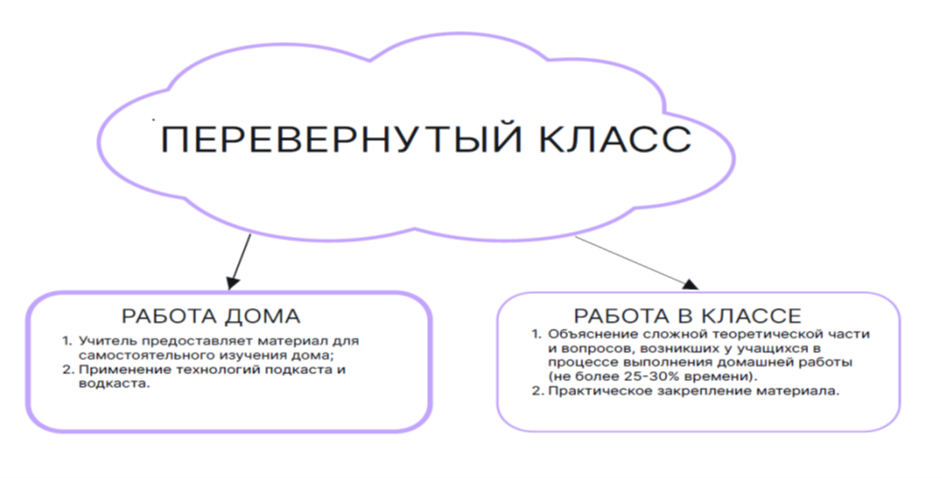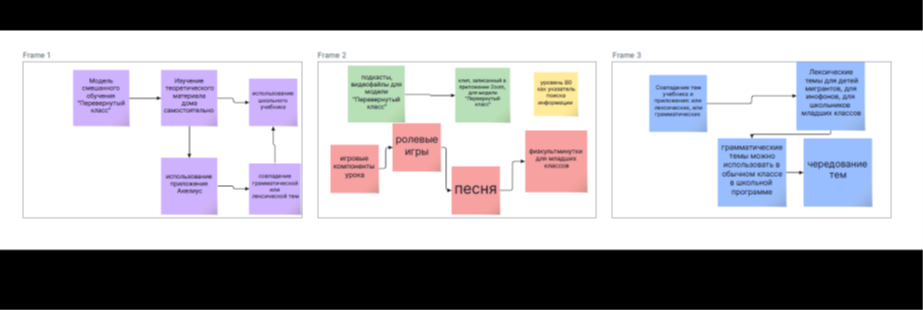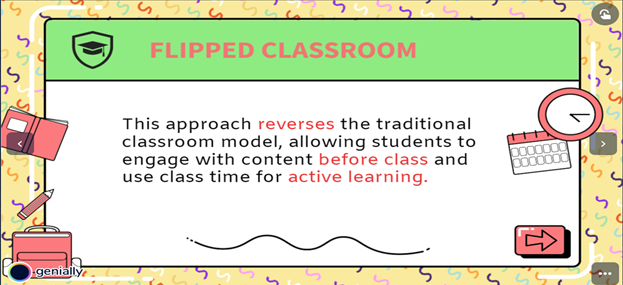From March 27 to March 30, 2024, IITU language and methodological experts conducted a series of trainings for teachers on the topic “Tools of a modern teacher (Flipped Classroom model)” on the ZOOM platform.
At the end of March, a series of trainings for teachers took place on the topic “Tools of a modern teacher (Flipped Classroom model)” on the ZOOM platform. Teachers from different schools in the cities of Astana, Almaty and Shymkent took part in the trainings. The leading speakers of this training were: Oksana Bublikova, Candidate of Philological Sciences, Associate Professor of the Department of Languages of JSC IITU in the Russian language and Zulfiya Ainabaeva, expert in “Teaching Young Learners” in English.
Oksana Bublikova notes that the Flipped Classroom is a teaching model in which the teacher provides material for self-study at home, and practical reinforcement of the material takes place in a face-to-face lesson. Flipped learning is characterized by the use of vodcasts, podcasts, and pre-vodcasting.

According to Oksana Bublikova: “If a student does not understand something from the theory, it is difficult to make up for it. During the lesson, the teacher is in a hurry to present the material in such a way as to cover everything. Often there is not enough time to fully explain the topic, and the child cannot keep up with the pace of the teacher’s explanations. Or time is spent on organizational issues and maintaining discipline, and the teacher begins to explain a new topic only at the end of the lesson. Students go home with a lot of questions - they have to call their parents, connect with tutors and try to understand what the essence of the material and homework is. The solution that the flipped classroom offers: the theory is presented before the lesson, and the student can spend as much time studying it as needed. This makes it easier to assimilate the material.”
Each training, lasting 60 minutes, was aimed at practical work with teachers. The expert presented the advantages and possibilities of organizing a lesson using the “Flipped Classroom” model. As Oksana Bublikova explains: “The Flipped Classroom is a blended learning model, like Station Rotation, so we offer a step-by-step explanation and demonstration of how to plan a lesson with the Flipped Classroom model using not only the school textbook, but also the Akelius application.”

Zulfiya Ainabayeva emphasized that the use of the “Flipped Classroom” model will allow the use of blended learning methods to work with multi-level classes, using the capabilities of Akelius in their teaching practice, and will also create a dynamic and interactive learning environment through the resources of the Akelius application. The practice of the “Flipped classroom” model in the educational process leads to an increase in the level of activity, independent work and enthusiasm of students. As the language expert summarized: “Despite possible technical difficulties, it was more expedient to invite teachers to build their lesson using the “Flipped classroom” methodology and the Akelius application (instead, the trainer herself developed and explained the essence of the method, this was based on the experience of the previous training, when many teachers were unable to complete assignments online due to technical reasons.)”

At the end of the training, Oksana Bublikova added that the lexical topics of the Akelius application are good for students with a weak level of Russian and for primary school students; grammar topics that are at level B0 in the Akelius application are advisable to use in regular classes for the Kazakhstani curriculum; levels in the Akelius application should only be used as an index of lexical and grammar topics as a whole material (suggestion of teachers, they do not divide their students into levels).
At the end of each training, participants were given tasks to consolidate new material. Speaker Oksana Bublikova thanked all participants for their fruitful joint work and feedback.
“I believe that our 3-day training was quite successful, primarily due to the fact that teachers showed interest in using the Akelius in their teaching practice. Moreover, they expanded their understanding that the Akelius app is great for blended learning models in a regular everyday lesson: a variety of vocabulary and grammar topics. Some teachers took a fairly active part in the training, showing initiative, some teachers offered a variety of exercises to be applied in the blended learning model,” concluded project coordinator Zhannura Manapbayeva.
